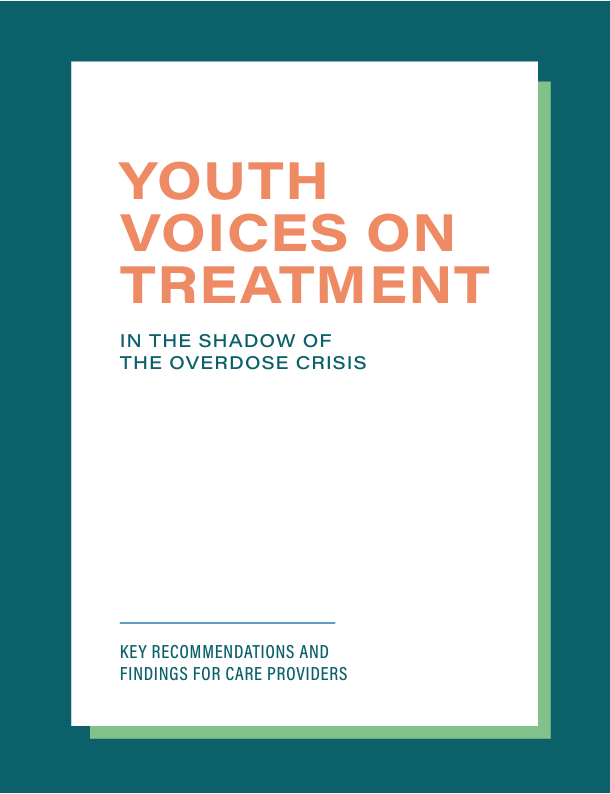|
The overdose crisis in British Columbia is having devastating effects on youth and their loved ones. Since an official public health emergency was declared in B.C. in April 2016, over 10,000 people, including over 1,800 young people under 30 years of age, have lost their lives to overdose in the province. Youth experiencing street involvement (i.e., those experiencing street-based homelessness or unstable housing) are particularly vulnerable to overdose in this setting.
This report emerged from a program of community-based participatory research focused on youth substance use and health. The program, based at the BCCSU, comprises three university researchers and a Youth Advisory Council of ten young people (ages 17 to 28) with lived and living experience of substance use and mental health concerns in the context of unstable housing and homelessness. Interviews with youth-focused care providers – including family physicians, nurse practitioners, nurses, drug and alcohol counselors, and social workers – also informed the report.
The report makes 10 recommendations to help care providers foster more constructive relationships built on mutual trust and respect. Report authors drew upon a series of qualitative research studies conducted with youth experiencing street involvement in Vancouver, Prince George, and Kelowna provides guidance and recommendations for health care providers.
|

